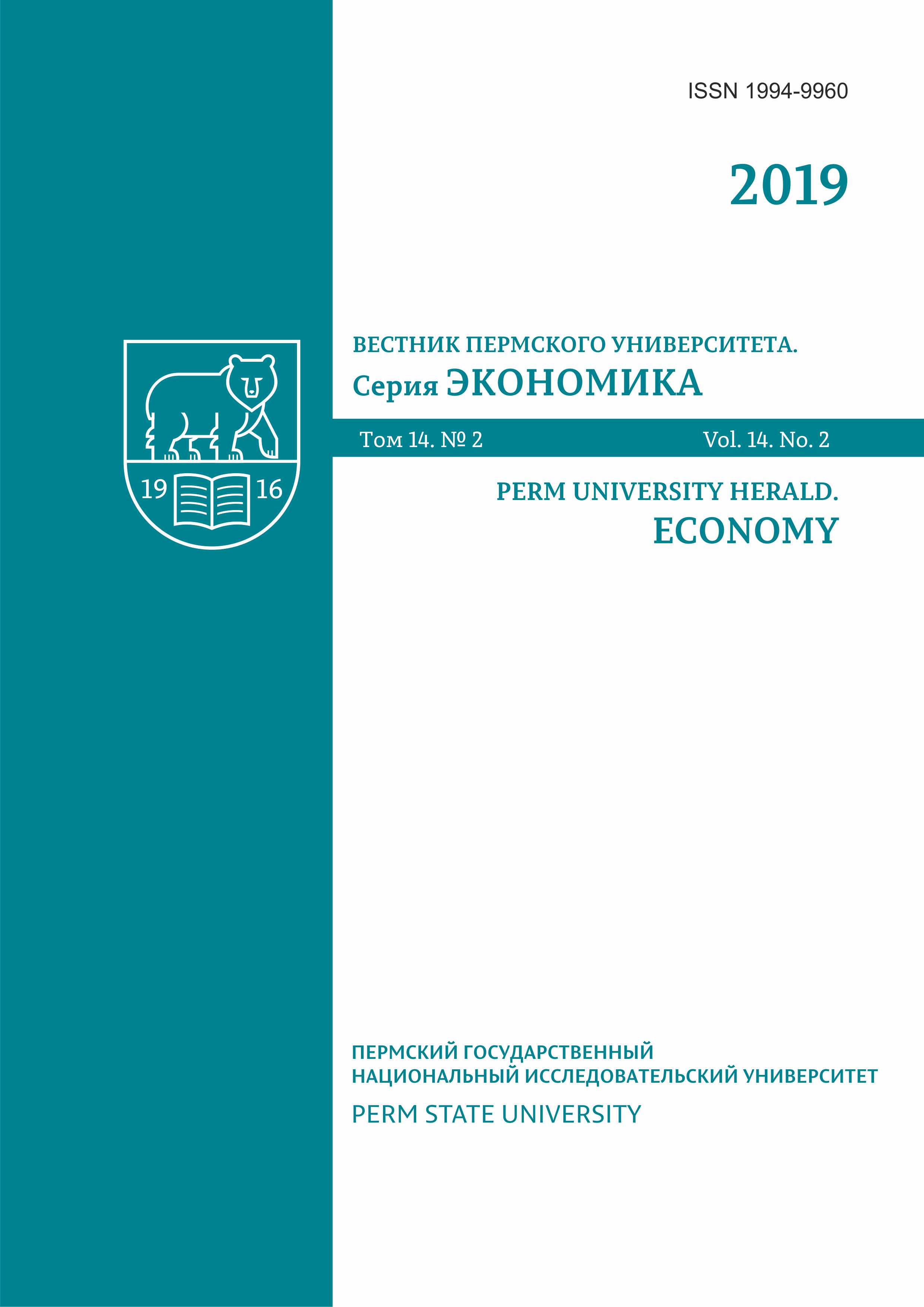Vol. 14 No. 2 (2019)

The journal section “Economic theory” is devoted to the investigation of informatization and digitalization of modern economy. The first article provides theoretical analysis of functions of different types of information to determine the information efficiency coefficient and information development trends of different economic systems. The tools for information security analysis have been suggested using the comparison of losses and profits caused by possible information threats. The tools will help minimizing the potential of economic system management dysfunctions. In the second article the authors use the postulates of institutional economic theory and econometric analysis to classify the institutes of knowledge generation of a smart city in terms of digital economy.
In the section “Economic-mathematical modeling” dynamic stochastic models of general equilibrium have been applied for the investigation of economic systems of different levels. In the first article the general equilibrium stochastic model of the economy of Kazakhstan has been described using Bayesian assessment of the model parameters. The effects on the key macroeconomic parameters caused by demand and supply shocks and the change of interest rate policy of a monetary regulator as well as the change of labour demand have been estimated using the DSGE-model. In the second article of the section a dynamic stochastic multi-sector model with microeconomic substantiation has been developed for the formalization of the development of a regional social and economic system and for the determination of sustainable regional policy and spatial development of the entities of the Russian Federation. In the final article of the section the fractal analysis has been applied for the study of the financial tool dynamics that will allow us to make accurate forecasts for the development of the Russian financial market.
The section “Regional economy” begins with the article devoted to the essence of information-innovation-technological processes as a component of a modern macroeconomic cycle. The essence has been revealed using the development and testing of methodological tools for the cycle analysis on regional social and economic system scale. In the next article the authors prove the relation between the financial literacy of the population and its demographic features according to the stages of a family life cycle. It has allowed formulating more precise recommendations for financial literacy problem leveling. Another article is devoted to the problems in the development of the utility sector of the economy of the Russian Federation. The authors have proven the trends of the improvement of the concession agreement mechanism in the utility sector and the procedure of their reconciliation in regional economy using the analysis of factors that increase investment attractiveness of the utility sector of the economy.
The final article of the issue concerns the application of a balance method for the investigation of a regional forestry complex. The model of inter-product forestry complex balance developed by the authors and the system of local balances help to obtain absolutely new information about the production resources of the complex and their efficiency.









